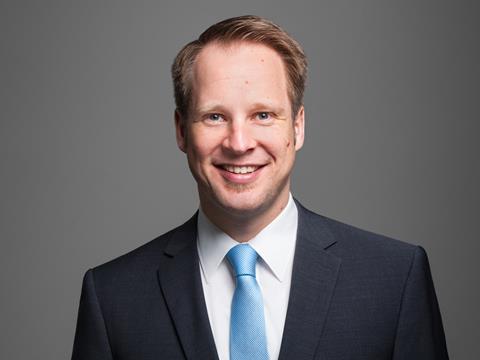
We recently caught up with Dr. Benedikt Brenken of Reifenhäuser to talk about the R-Cycle Initiative - a collaborative project that seeks to simplify and improve plastics recycling processes.
Please could you introduce the initiative to our readers?
R-Cycle enables a circular economy for plastic packaging by increasing the quotas for true recycling significantly. Our initiative confronts the current problem of not being able to process plastic packaging into pure fractions within the recycling process.
To enable cradle-to-cradle recycling, a clear identification of the different types of plastics is required in order to extract pure recyclates for use in high-quality applications. Currently, most of our plastic waste in Germany gets downcycled or thermally utilized.
Therefore, R-Cycle – as an open and globally usable tracing standard along the life cycle of plastic packaging – provides seamless documentation of all recycling-relevant packaging properties based on established technologies. In the recycling process, packaging can thus be precisely identified and sorted.
And how does R-Cycle work in practice?
R-Cycle is a standardized data platform to document all recycling-relevant properties of a pack along its value chain. It is connectable with any production facility, from plastic film or injection molding lines to converting, printing, and filling machines.
To make the collected information retrievable, a marker – for example a QR or Digimarc code – is applied to the packaging. These codes can be detected by state-of-the-art camera technology, which is already in use in many recycling facilities.
The tracing technology behind R-Cycle is based on GS1 standards – the global leading network for cross-industry process development and known from more than six billion scanned barcodes every day.
What inspired the creation of the initiative?
The major challenge in the plastic industry is to build up a working circular economy for our products. Plastic is a high-performance material in many fields, like medical safety or hygienic food packaging. It even has ecological advantages compared to others, for example, due to its low weight.
But we have to improve the recycling quotes significantly, as called for in the European Circular Economy Action Plan, for instance. The motivation behind R-Cycle is to develop a technological approach for transferring plastic packaging into a truly circular economy.
What is the importance of cross-industry collaboration to R-Cycle?
To create a successful solution, an overarching approach is essential. You need the expertise and – even more importantly – the acceptance of all stakeholders. At present, the four plastics machinery manufacturers Arburg, Brückner Maschinenbau, Kautex Maschinenbau, and Reifenhäuser as well as the Institute for Plastics Processing at RWTH Aachen University have taken the lead in developing R-Cycle to market maturity and further companies are about to join.
During this phase, GS1 Germany provides its support to transform R-Cycle into a global standard that can be used across all sectors. Subsequently, R-Cycle will be openly accessible to all companies in the plastic packaging industry and its supplier companies.
What does the future hold for the initiative?
R-Cycle is currently tested and verified in pilot projects which are carried out together with raw material producers, packaging manufacturers, brand owners, wholesalers and retailers. The next important step is to convince as many relevant stakeholders as possible. Several other initiatives are working on adjacent aspects of the same challenge.
Certainly, the largest is Digital Watermarks – also known as HolyGrail 2.0 – initiated by AIM, the European Brands Association. The cross-value chain initiative includes 88 companies and organizations and aims for assessing pioneering digital technologies which can enable better sorting and higher-quality recycling in the EU.
The R-Cycle partners – who also partly participate in Digital Watermarks (HolyGrail 2.0) – intend to contribute their expertise to any interested parties and align it with the most valuable concepts.










